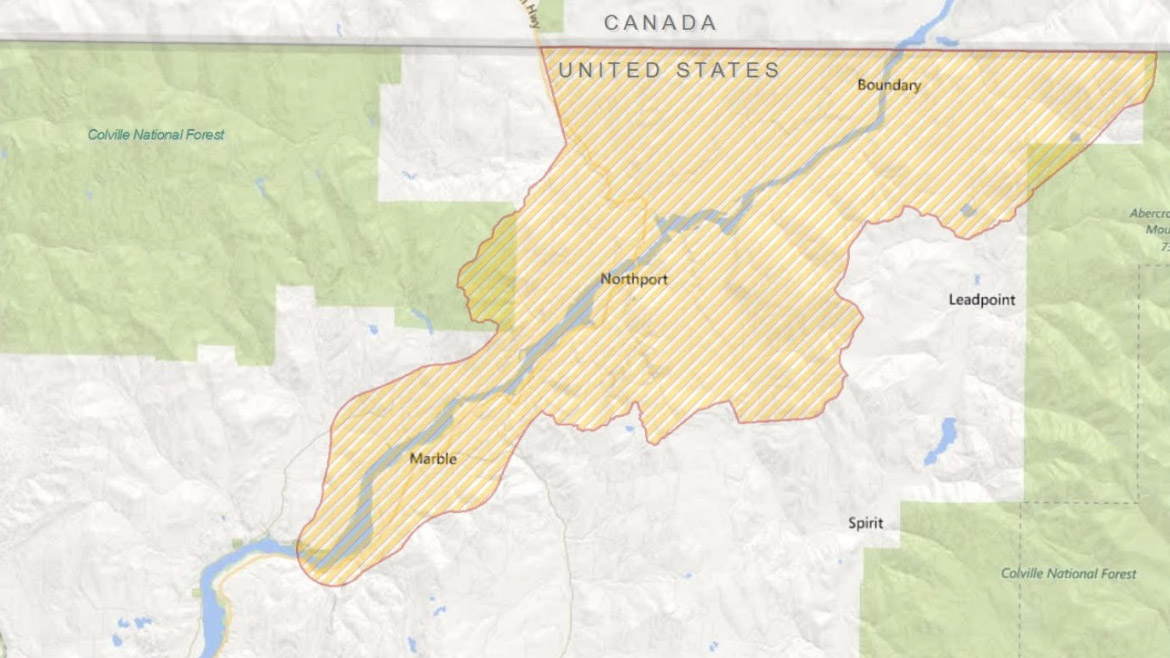EPA Completes Lead Soil Cleanup at 9 Northport Properties
The contamination in the area comes from the former Le Roi lead and zinc smelter in Trail, British Columbia

(Courtesy of EPA)
The U.S. Environmental Protection Agency has finished removing lead-contaminated soil from nine residential properties in and around Northport, Washington. The cleanup, which used $2.8 million in Superfund tax funds, aims to protect children and women of childbearing age from the dangers of lead exposure.
The contamination in the area comes from the former Le Roi Smelter in Northport and the Teck Metals Ltd. lead and zinc smelter in Trail, British Columbia. Since 2004, the EPA has conducted or overseen soil cleanup activities at about 85 properties in the area.
"EPA's cleanup of residential properties further demonstrates our commitment to reducing the life-long effects of lead exposure in people and especially young children who live and play in the area," said EPA Region 10 Administrator Casey Sixkiller. "This critical work will continue as long as there are risks to the people of the Upper Columbia."
For the 2024 residential soil cleanups, the EPA identified properties with soil above 200 mg/kg for lead and/or above 90 mg/kg for arsenic — and where children and/or women of childbearing age have unrestricted access to lead-contaminated soil. The agency worked with property owners who consented to soil cleanup. In total, almost 5,400 tons of contaminated soil were removed and transported for disposal.
The State of Washington supported the project by arranging and providing funding of $352,000 for disposal of the contaminated soil at the Stevens County Landfill.
"We are grateful for our partnership with the EPA, which has allowed us to take significant steps in protecting the health and well-being of the Northport community," said Nick Acklam, Ecology's Eastern Region Toxics Cleanup Program manager. "By working together to remove lead-contaminated soil, we're not only addressing an immediate environmental concern but also creating a safer future for the folks that live in Northport."
Lead poses serious health risks through direct contact and incidental ingestion of soil. In infants and children, lead can severely harm mental and physical development. In adults, lead can cause increased blood pressure, heart disease, decreased kidney function, and cancer.
The EPA has updated its residential soil lead guidance, a significant milestone in the agency-wide Strategy to Reduce Lead Exposures and Disparities in U.S. Communities. The change reflects the science showing that lead exposure is harmful to children's health at lower levels than was reflected in previous agency guidance.
For more information on lead-related health risks and how to reduce your exposure, visit the EPA's Learn about Lead webpage. Additional resources are available from the Washington Department of Ecology's Dirt Alert Program and the EPA's Updated Soil Lead Guidance webpage.
The EPA Upper Columbia River website provides more information on the Upper Columbia River study area. If you have questions about this soil cleanup work or want to conduct an interview, contact the EPA Region 10 Public Affairs Office. Photos are available upon request.



